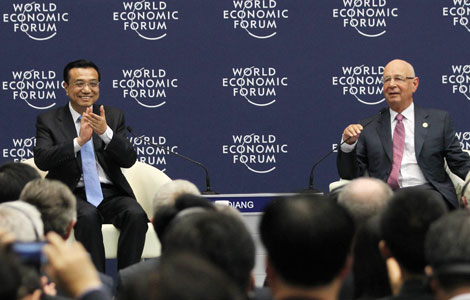

BEIJING - Eighty-two years after Japan's invasion of China and one year since Japanese government's "purchase" of China's Diaoyu Islands, bilateral relations mired in history have witnessed the cooling down of economic exchanges, despite remaining hopes among business people.
The phrase "warm economic ties, cold political relations" has been used since the 1990s to describe China-Japan relations. The recent disputes, however, have renewed concerns that economic ties are no longer "warm" amid "cold political relations."
The tension follows the Japanese government's unilateral move in September 2012 to "nationalize" part of the Diaoyu Islands, which have been Chinese territory since ancient times.
Moreover, Japanese cabinet members worshipping at the war-linked Yasukuni Shrine and attempts to amend the constitution to allow Japan to possess "normal" armed forces have further strained tensions between the world's second- and third-largest economies.
China's official customs statistics suggest that the volume of China-Japan trade has dropped 8.8 percent year-on-year to $174 billion in the first seven months of this year. The trade volume shrank six percent in August alone.
Statistics from Japan External Trade Organization (JETRO) show that exports of machinery, cars and auto parts declined dramatically by 63 percent between September and December of 2012 compared to the same period in the previous year.
Auto sales of Japanese brands in China have also been overshadowed. According to Zeng Fengyi, an employee with Toyota Moto (China) Investment Co Ltd, the China market has been "fatigued" since September of last year.
The market has not rebounded in the first eight months this year, with overall Japanese car sales in China down by 6.6 percent year-on-year, statistics show.
 Highlights of CIAPE 2013
Highlights of CIAPE 2013
 2013 China International Auto Parts Expo kicks off in Beijing
2013 China International Auto Parts Expo kicks off in Beijing
 Tesla, electric, hybrid cars at Frankfurt 2013 Motor Show
Tesla, electric, hybrid cars at Frankfurt 2013 Motor Show
 Supercars at Frankfurt 2013 Motor Show
Supercars at Frankfurt 2013 Motor Show
 Cars, models at Frankfurt 2013 Motor Show
Cars, models at Frankfurt 2013 Motor Show
 Concept cars at Frankfurt 2013 motor show
Concept cars at Frankfurt 2013 motor show
 Premier Li meets entrepreneurs, answers questions
Premier Li meets entrepreneurs, answers questions
 Premier stresses education equality
Premier stresses education equality